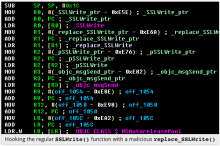The Keen, a top hacking team which took down Windows 8.1. Adobe Flash in just 15 seconds and Apple’s Safari Mac OS X Mavericks system in only 20 seconds during a Pwn2Own Vancouver event in March, has divulged the identity of its members, a Chinese newspaper reported on 13 April 2014.
“50 percent of us are the top scoring students in the national college entrance examination. 50 percent are majored in mathematics, and 50 percent are from Microsoft,” said Lv Yiping, key member of the Keen and co-founder and chief operating officer of the team’s Shanghai-based parent company.













































































